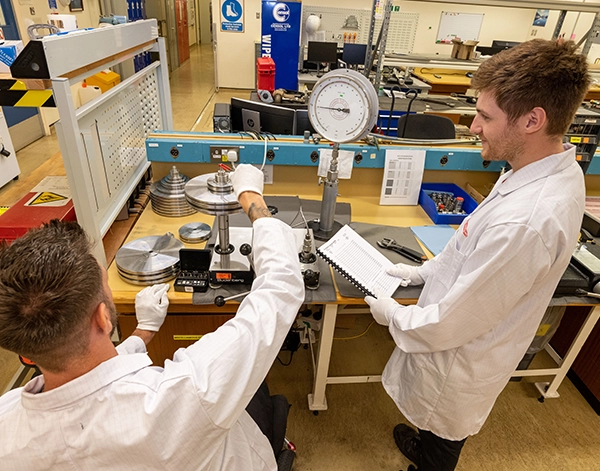Professional Forester Degree Apprenticeship
The University of Cumbria is home to the National School of Forestry (NSF) in Ambleside, the largest provider of undergraduate forestry and woodland courses in England. This Higher-Level Degree Apprenticeship offers a unique blend of academic study and hands-on experience, with most learning based at our Ambleside campus and some modules delivered in Carlisle and at Forestry England’s 2,500-hectare Cannock Chase estate.
Designed with input from leading employers including the Forestry Commission, National Trust, and Institute of Chartered Foresters, the course ensures apprentices gain the skills and knowledge that employers value most. Apprentices graduate with a degree accredited by the Institute of Chartered Foresters and the Institute for Apprenticeships and Technical Education, ready to lead in forest and woodland management or progress to postgraduate study.

In year one, apprentices will build a solid foundation in forestry principles and practical skills. They will learn to identify broadleaf and conifer species, develop academic and report writing abilities, and begin working with mapping software. Modules cover essential topics such as tree and woodland measurement, silviculture, woodland ecology, and the safe use of forestry tools. Apprentices also explore how wood is processed and utilised, gaining an understanding of its biological properties and value as a raw material.
In year two, apprentices will focus on applying forestry knowledge in professional contexts. They will explore Geographical Information Systems (GIS), forest health and protection, and the policies and governance that shape sustainable forest management. They will also learn how to manage forest operations, from harvesting to replanting, and examine the vital relationship between forests and communities. A professional practice module will support apprentices in reflecting on their development and growing identity as a forester.
Year Three: Leadership and Specialist Practice
In year three, apprentices will advance their skills in business planning, forest management, and climate-conscious forestry. They will engage in forest plan development aligned with sustainable forest management principles, explore advanced silvicultural techniques, and learn strategies for responding to climate change through climate-smart forestry. The year concludes with a student-led End Point Assessment, where apprentices will receive tailored support to successfully complete their apprenticeship and demonstrate their readiness to enter the profession.
- To be able to gain hands-on forestry experience and develop professional connections as an apprentice.
- To be able to back up practical experience with academic studies, learning from lecturers with significant professional forestry experience as well as strong academic and research skills.
- To be able to join the National School of Forestry (NSF), benefiting from more than 50 years of experience in educating and training professional and award-winning foresters.
- To be able to boost employability through our excellent links with the Royal Forestry Society, Institute of Chartered Foresters and many other forestry organisations.
Government funding rules require that an apprentice must have the right to live and work in the UK, must be in employment, paid at least the legal minimum wage and have a written and signed agreement for the apprenticeship with their employer. The minimum duration periods for an apprenticeship set in each Apprenticeship Standard is based on an apprentice working a minimum of 30 hours per week. Where the apprentice works fewer than 30 hours, the minimum duration of the apprenticeship must be increased on a pro-rata basis. Selection of apprentices (in England) is principally an employer-led activity.
Funding for the apprenticeship is provided through the Education and Skills Funding Agency (ESFA) and is paid in the following way:
- Levy paying employers with sufficient funds in their digital account – 100% funding.
- Non-levy payers – 95% ESFA funding, 5% Employer co-funding. Non-levy paying companies will be asked to pay their 5% of the full cost of the apprenticeship at the start of the programme.
- Non-levy-paying organisations must register on the government's Digital Apprenticeship Service and reserve funds for their apprenticeship prior to the programme starting, unless they are being funded by levy-transfer.
All apprentices must be interviewed, assessed and offered a position by an employer before being admitted to the apprenticeship programme. Although the University may receive direct enquires and filter these before passing to prospective employers, apprentices must apply directly via an employer. After acceptance by an employer, the University of Cumbria will require a formal application, which it will assess according to the programme entry criteria.





